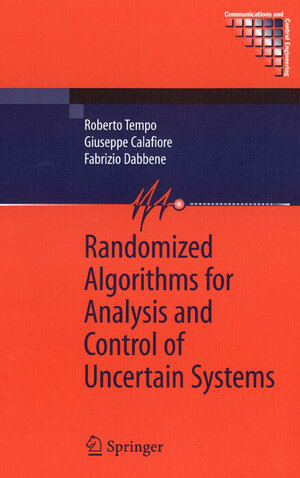
From the reviews:
In summary, this book provides an excellent survey of how randomization techniques are successfully applicable for advanced robust control... The style of writing renders it very well accessible for final year Master's students with a solid background in robust control, and for the whole control community it constitutes an excellent up-to-date foundation for entering research on probabilistic techniques.
Automatica 41 (2005) 2001 – 2017 (Reviewer: Carsten Scherer)
I believe that this book is a very good tool for introducing both control practioners and graduate students to the area of probabilistic robustness. An overview of basis results in both control and probability is provided. Moreover, it describes many of the recent results in the area of probabilistic robustness.
Summarizing, in this book, the area of probabilistic robustness is for the first time introduced in a sympathetic way and it is, in my opinion, a very useful reference for anyone who wants to get acquainted with this area.
International Journal of Robust and Nonlinear Control 16 (2006) 728 – 729 (Reviewer: Constantino M. Lagoa)
The central theme of the present work is the application of randomized algorithms to various problems in control system analysis and synthesis.… This well-written book can be recommended to readers in control systems analysis and synthesis, especially in robustness analysis and robust controller synthesis.
Zentralblatt MATH 1079 (2006) (Reviewer: Kurt Marti)
Randomized Algorithms for Analysis and Control of Uncertain Systems
von Roberto Tempo, Giuseppe Calafiore und Fabrizio Dabbene- self-contained treatment explaining randomized algorithms from their genesis in the principles of probability theory to their use for robust analysis and controller synthesis;
- comprehensive treatment of sample generation, including consideration of the difficulties involved in obtaining independent and identically distributed samples;
- applications in congestion control of high-speed communications networks and the stability of quantized sampled-data systems.



